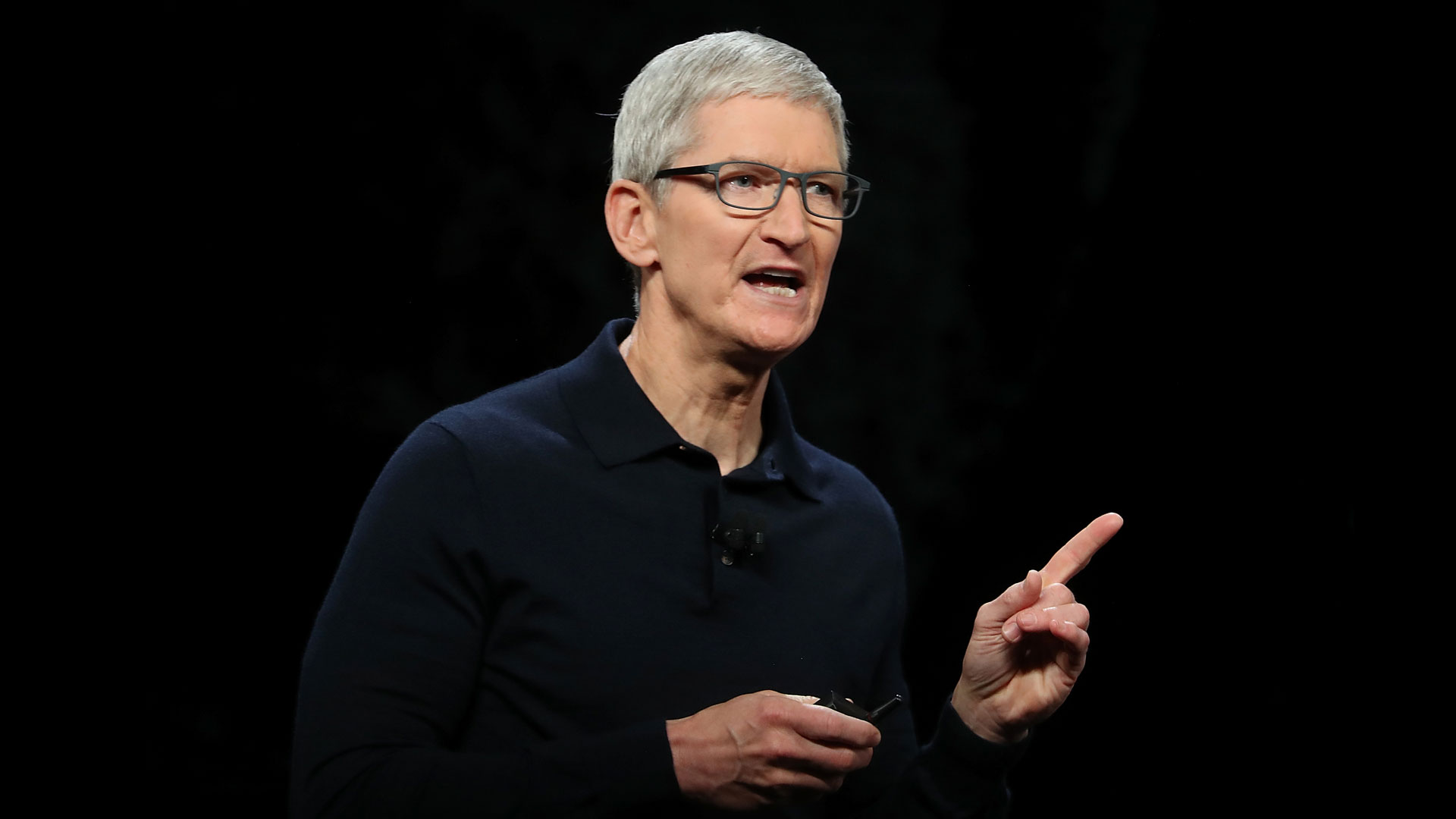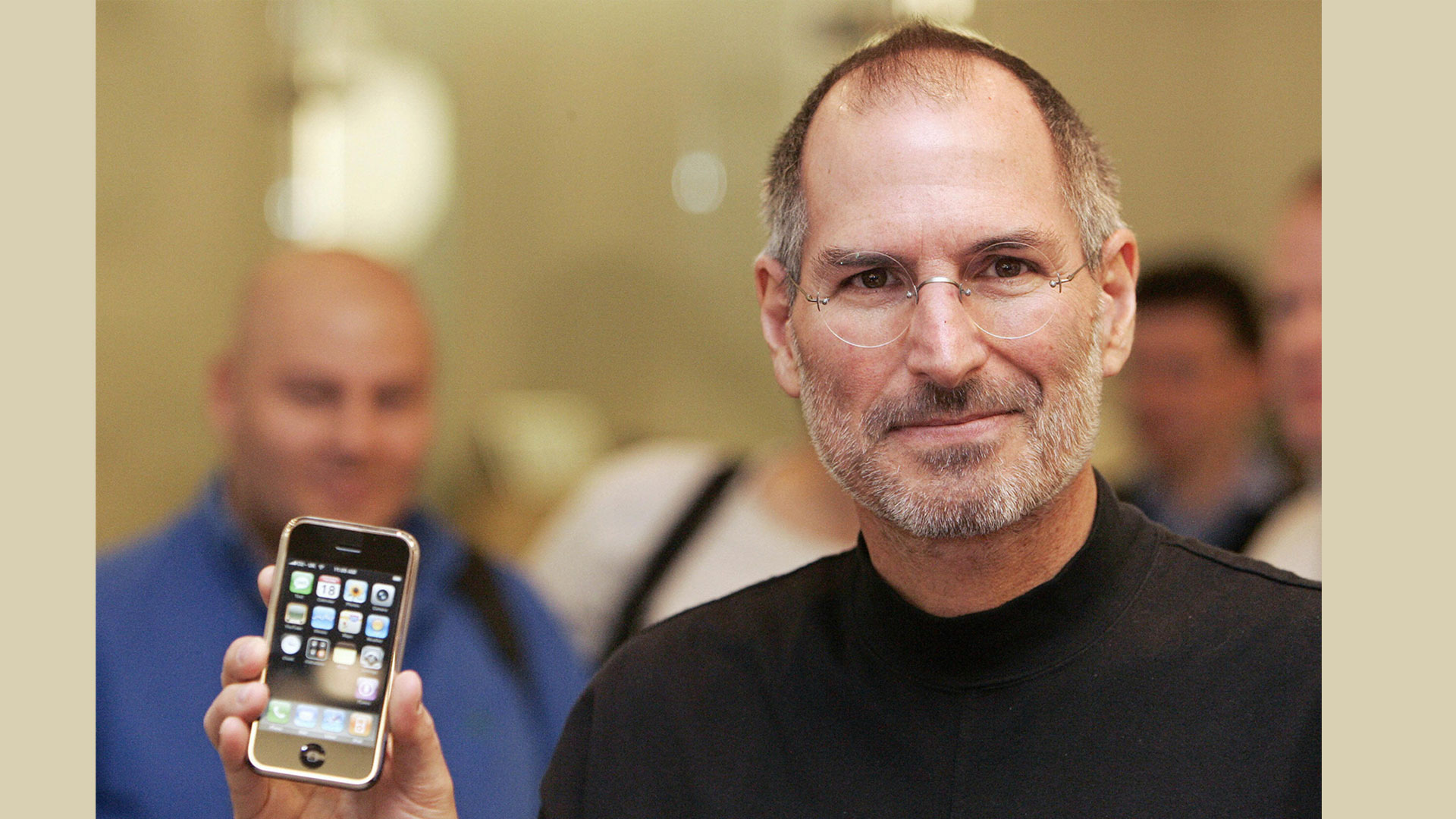Please stop trying to turn Apple's WWDC VR reveal into Tim Cook's iPhone moment
Opinion: Apple's first VR hardware should be a huge deal, just not iPhone-sized

Apple's WWDC 2023 and the keynote in which CEO Tim Cook almost certainly unveils the company's first virtual reality product could be a defining moment for Apple and, especially Cook. It could be his iPhone moment.
It also might be another Apple Watch moment.
I think most reasonable people would agree the iPhone's impact on culture and society is almost equal to that of television. It's not that mobile phones didn't exist before (BlackBerry, Nokia, and Motorola have stories to tell), but the iPhone almost perfectly defined what a smartphone should and could be.
Virtually every smartphone product that followed (at least those that survived) was built in the iPhone's image. The iPhone changed the mobile industry and it changed us as a people. Our focus shifted from the faces in front of us to that tiny, information- and entertainment-filled screen in our palms. We've scarcely looked up since.
One of a kind

Apple co-founder and former CEO Steve Jobs, along with designer Jonny Ive, and engineer Tony Fadell made that possible, though the iPhone creation myth is forever intertwined with the Steve Jobs myth. Neither is entirely accurate, but we've long ago accepted the legend as fact. It is quite possible, though, that there would be no iPhone, at least not like the one we got, without the iconic leader demanding changes and near perfection.
The runup to the launch of the rumored Reality Pro mixed reality headset and supporting xrOS platform is not quite as hype or hyperbole-filled as the months, weeks, days, and hours leading up to the iPhone's January 2007 unveiling. This isn't "the Jesus headset."
A defining moment
Still, some are predicting, like longtime analyst and industry insider Robert Scoble, that whatever comes on Monday, June 5, it will be dropping a small neutron bomb in the burgeoning virtual reality industry and when the dust settles, Meta's Quest VR gear and, by extension, Meta CEO Mark Zuckerberg will become irrelevant.
Scoble and I have known each other for years and I respect his opinion, especially on VR which he now champions (along with AI) as chief strategy officer for Infinite Retina. Still, I wasn't quite buying this notion that Meta and its VR hardware were about to go the way of Nokia after the introduction of the iPhone.
For the Reality Pro VR headset to be Tim Cook's Apple moment, it can't just be a beautiful device that significantly advanced the art of mixed reality, it has to offer the possibility of effortlessly changing countless lives.
Part of the problem is that, while Apple's curved VR headset may be unlike anything we've ever seen before, VR is not the mobile phone industry.
In 2007, the year Apple unveiled the iPhone, there were 3.3 billion smartphone users. In 2023, by contrast, there are roughly 69M virtual reality users and another 110 million who regularly use less immersive augmented reality.
Here's how I explained on Twitter to Scoble:
"Not sure VR is big enough to have that kind of impact. Not everyone looks at a VR headset and thinks "OMG, I must have that." The iPhone was like that. It didn't ask to be worn or for you to change how you engage with the world. It only wanted to be held and you chose the journey."
A smartphone, really the iPhone, is a product for everyone. It's like bread or butter or even a refrigerator or a stove. You don't need to build a consumer profile to know that any of these are right for almost any customer. VR is different. Even today with admirable penetration in gaming and some business operations, it's a niche category that appeals to early adopters and those willing to wear relatively bulky technology on their heads.
Relevancy.It has nothing to do with market share.10 minutes before Steve Jobs announced the iPhone Nokia was relevant. 10 minutes after? Nokia was no longer relevant.It took years for that to show up in market share. My prediction? Monday afternoon Zuckerberg will no…June 1, 2023
Apple's last big product category entrant, the Apple Watch, was also a wearable but no one had to show you how to wear it. People have been wearing wristwatches for centuries. The Apple Watch offers a lot of new functionality but it's built around a completely recognizable object that still delivers the answer to one essential question: What time is it?
A VR headset is similar to the iPhone in that it can answer a billion questions: What's it like to walk on Mars? Run with dinosaurs? Parasail off a mountain? But VR has no core purpose that ties to an essential need.
Simplicity and a core purpose
The iPhone may have opened up a world of possibilities through apps, but first, it made calls. Even to this day, we communicate first (calls, video, email, chat, and social media) through these handsets. Games, content consumption, and other experiences might be considered secondary.
For the Reality Pro VR headset to be Tim Cook's Apple moment, it can't just be a beautiful device that significantly advanced the art of mixed reality, it has to offer the possibility of effortlessly changing countless lives.
Anything we put on our heads, requires an external battery pack, shuts us off from the outside world, and then asks $3,000 for the privilege of doing so, is not that product.
Tim Cook will have a big moment on Monday, but it won't be the defining moment of his Apple career. For all we know that moment has already passed.
Get daily insight, inspiration and deals in your inbox
Sign up for breaking news, reviews, opinion, top tech deals, and more.

A 38-year industry veteran and award-winning journalist, Lance has covered technology since PCs were the size of suitcases and “on line” meant “waiting.” He’s a former Lifewire Editor-in-Chief, Mashable Editor-in-Chief, and, before that, Editor in Chief of PCMag.com and Senior Vice President of Content for Ziff Davis, Inc. He also wrote a popular, weekly tech column for Medium called The Upgrade.
Lance Ulanoff makes frequent appearances on national, international, and local news programs including Live with Kelly and Mark, the Today Show, Good Morning America, CNBC, CNN, and the BBC.